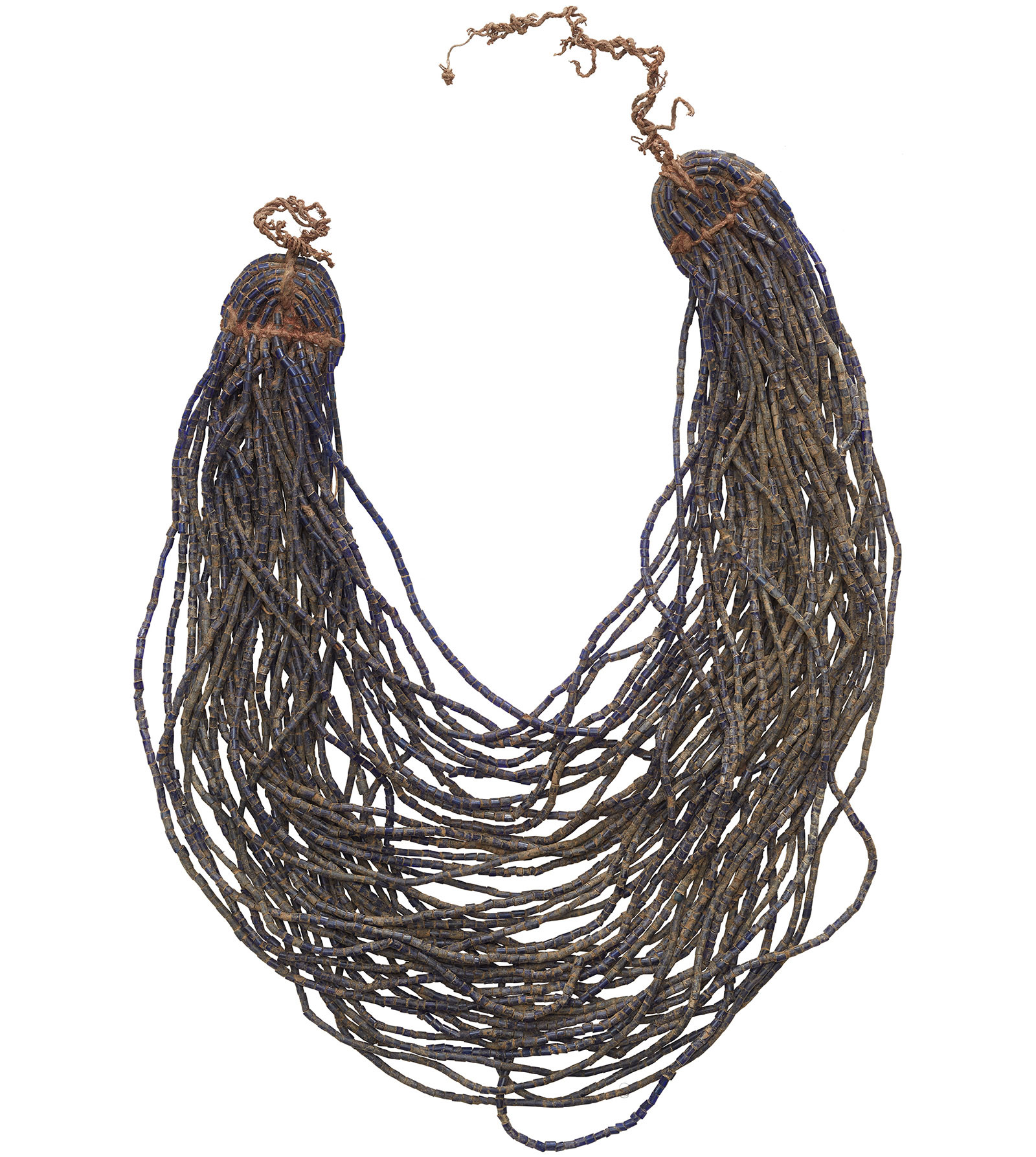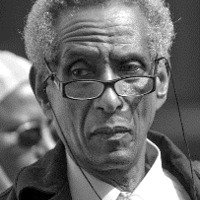The legacy and perception of Mahdism in Sudan.
Item
Title
The legacy and perception of Mahdism in Sudan.
Creator
Subject
Interview with Osman Nusairi - What isthe legacy of Mahdism in Sudan and how is it now perceived in Sudan?
Description
Excerpt from interview with Osman Nusairi.
To understand how Mahdism is perceived now in Sudan, it is important to know what happened over subsequent decades. There was a revival of Mahdism in Sudan under colonial rule – but it took a different form. With the help of the British, the son of the Mahdi was built into a business man, helped with huge grants and land, and was given recognition. There is still some allegiance to the son of the Mahdi in some tribes of western parts of Sudan. Mahdism built its base on economic activities – there was almost free labour from supporters of Mahdism. So, this revival of Mahdism was allowed in the form of the glorification of the Mahdi himself, but not in the form of resisting the British. On the contrary, he was almost made by the British and the British acknowledged that and he was knighted. His descendants used the legacy of Mahdism, plus support of British colonialists to build a political party which was essentially again through British assistance and a counterweight to other nationalist forces, which might be pro-Egyptian. So, one way the legacy of Mahdism exists is in the form of a clan, a family, which is trying to rely on that heritage and thinks they are entitled to reap it. The Mahdi’s family kept the name as a surname, and followers would be said to be a sort of extension to the Mahdist clan. As such, they do still play a role in Sudanese politics, though I would say the role is diminishing.
Increasingly there were people who could see the negative aspects of the Mahdist experience. Particularly the way Mahdism considered every opposition an act of infidelity – by rejecting the Mahdi you were believed to be a non-Muslim, which should not be the case within Islam. The fact that opponents were treated as non-Muslims just because they opposed the Mahdi came to be seen as a very serious error. The tendency of Islamist groups to treat others as non-Muslims just because they disagree with them was traced back to the Mahdist experience. Another issue is the role of women as seen by the Mahdi and Khalifa in their proclamations, which is something people cannot fight for now. It was very restrictive, against even Sudanese traditions of respect for the role of women and generally more openness.
In my view, the positive aspects of Mahdism were in the fighting spirit of the Mahdi and those people around them that enabled Sudan to be freed from colonial experience. But as administration, it might be noted that Mahdism relied heavily on non-Sudanese for technical aspects of running the country, from the printing press to operating guns, the artillery was led mostly by non-Sudanese who remained in the country because they were prisoners. Other technical work was handled by non-Sudanese, some of them cops, some of them of Turkish or Egyptian origin who stayed in the country as prisoners and gradually accepted a role as civil servants. So in a way the Mahdist machinery benefitted a lot from the state apparatus of the Ottomans in all technical aspects of running the country. Even finance, the Treasury would be headed by an Emir who is an Ansari, a Mahdist believer, but the staff would be largely people trained by or who worked under Ottoman rule. In a way it was clever to use the old machinery because they could have not coped easily with running a unified state except by relying on the structure that already existed. Twelve years do not seem a very long period considering that communication was very, very basic then. But the impact of Mahdism remains really strong, because no part of Sudanese history was better documented in every form. So, it has a large presence, not so much in the political sphere itself as in the thinking of Sudan, and as the first experience of running a nation-state by Africans in modern times.
It is important that most people who wrote about Mahdism in the West are Britons. Generally speaking, there is a tradition of professionalism and academic integrity in much recent scholarship published in journals such as Sudan Notes and Records – the British authors were not biased by anything except the limited bias of coming from a different culture. But they are very fair, and helped greatly in even drawing attention to aspects of Sudanese life, giving legitimacy to studying folk life with respect. Even the coverage of Mahdism was very fair. Authors show respect for the Mahdist experience, which is a very positive thing indeed. But that is not reflected in what Museums do. Museums pick objects from here and there, but do not provide context. A picture can be striking, but the caption or a few words does not make things understandable. So, in general, it is important to establish the basic fact that the people the British were fighting against were not savages, they are people with lives and people who fought back bravely. I think the British attitude generally in war, is to portray enemies before battle to demoralise or demonise them. But then after the fight you want to present them as brave and strong, not to say we killed a few rats here and now we are back. Rather, you’d want say, we had a fierce fight, it was a tough battle. The real fact however was the imbalance in weaponry - it was impossible for Sudanese to put up a better fight than they did in Karari in Omdurman in that September of 1898.
Increasingly there were people who could see the negative aspects of the Mahdist experience. Particularly the way Mahdism considered every opposition an act of infidelity – by rejecting the Mahdi you were believed to be a non-Muslim, which should not be the case within Islam. The fact that opponents were treated as non-Muslims just because they opposed the Mahdi came to be seen as a very serious error. The tendency of Islamist groups to treat others as non-Muslims just because they disagree with them was traced back to the Mahdist experience. Another issue is the role of women as seen by the Mahdi and Khalifa in their proclamations, which is something people cannot fight for now. It was very restrictive, against even Sudanese traditions of respect for the role of women and generally more openness.
In my view, the positive aspects of Mahdism were in the fighting spirit of the Mahdi and those people around them that enabled Sudan to be freed from colonial experience. But as administration, it might be noted that Mahdism relied heavily on non-Sudanese for technical aspects of running the country, from the printing press to operating guns, the artillery was led mostly by non-Sudanese who remained in the country because they were prisoners. Other technical work was handled by non-Sudanese, some of them cops, some of them of Turkish or Egyptian origin who stayed in the country as prisoners and gradually accepted a role as civil servants. So in a way the Mahdist machinery benefitted a lot from the state apparatus of the Ottomans in all technical aspects of running the country. Even finance, the Treasury would be headed by an Emir who is an Ansari, a Mahdist believer, but the staff would be largely people trained by or who worked under Ottoman rule. In a way it was clever to use the old machinery because they could have not coped easily with running a unified state except by relying on the structure that already existed. Twelve years do not seem a very long period considering that communication was very, very basic then. But the impact of Mahdism remains really strong, because no part of Sudanese history was better documented in every form. So, it has a large presence, not so much in the political sphere itself as in the thinking of Sudan, and as the first experience of running a nation-state by Africans in modern times.
It is important that most people who wrote about Mahdism in the West are Britons. Generally speaking, there is a tradition of professionalism and academic integrity in much recent scholarship published in journals such as Sudan Notes and Records – the British authors were not biased by anything except the limited bias of coming from a different culture. But they are very fair, and helped greatly in even drawing attention to aspects of Sudanese life, giving legitimacy to studying folk life with respect. Even the coverage of Mahdism was very fair. Authors show respect for the Mahdist experience, which is a very positive thing indeed. But that is not reflected in what Museums do. Museums pick objects from here and there, but do not provide context. A picture can be striking, but the caption or a few words does not make things understandable. So, in general, it is important to establish the basic fact that the people the British were fighting against were not savages, they are people with lives and people who fought back bravely. I think the British attitude generally in war, is to portray enemies before battle to demoralise or demonise them. But then after the fight you want to present them as brave and strong, not to say we killed a few rats here and now we are back. Rather, you’d want say, we had a fierce fight, it was a tough battle. The real fact however was the imbalance in weaponry - it was impossible for Sudanese to put up a better fight than they did in Karari in Omdurman in that September of 1898.
Publisher
Making African Connections
Contributor
Date
7 January 2020
Rights
© Making African Connections
Item sets
Linked resources
Filter by property
| Title | Alternate label | Class |
|---|---|---|
 Interview with Osman Nusairi Interview with Osman Nusairi |
Event |




